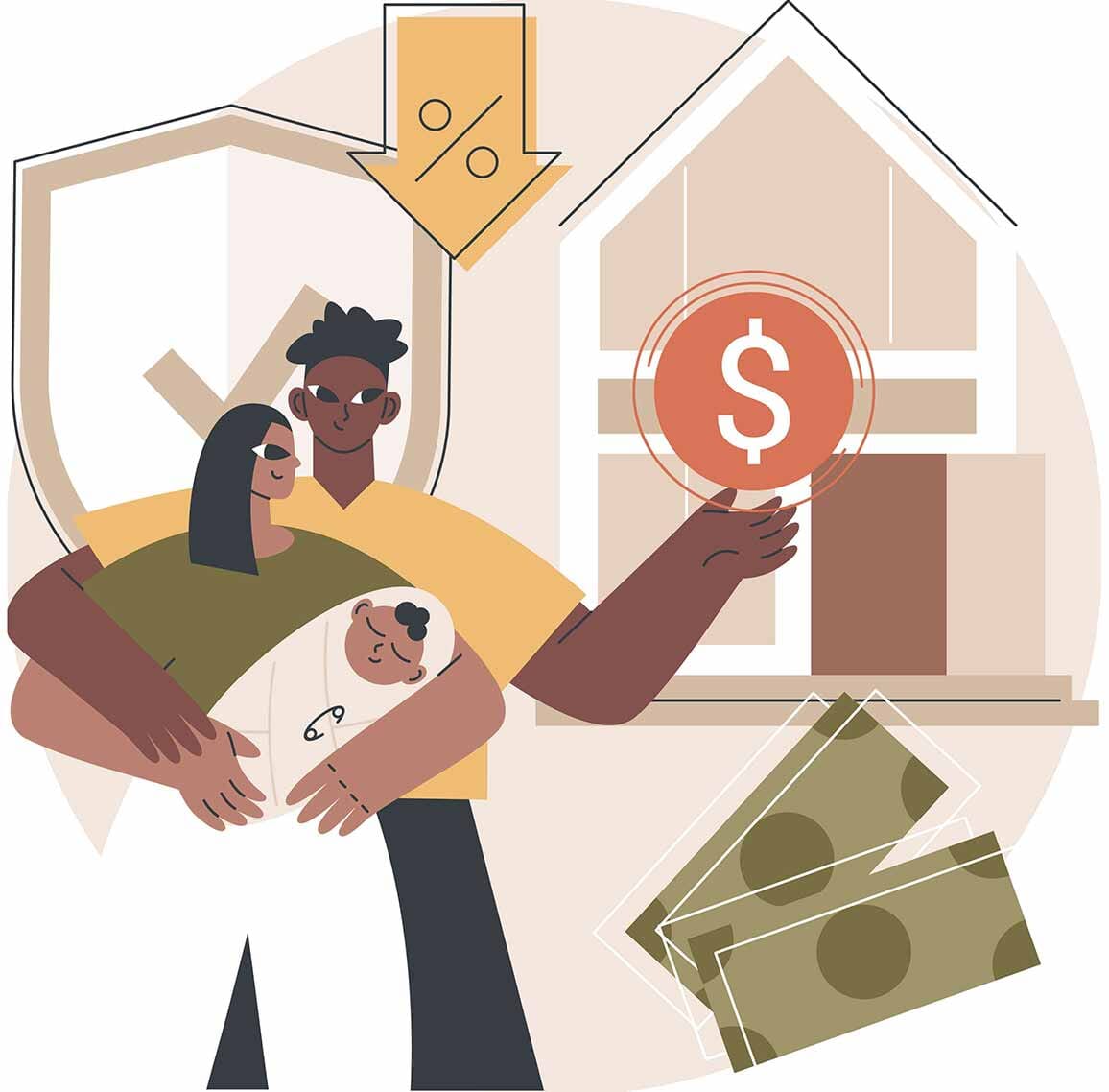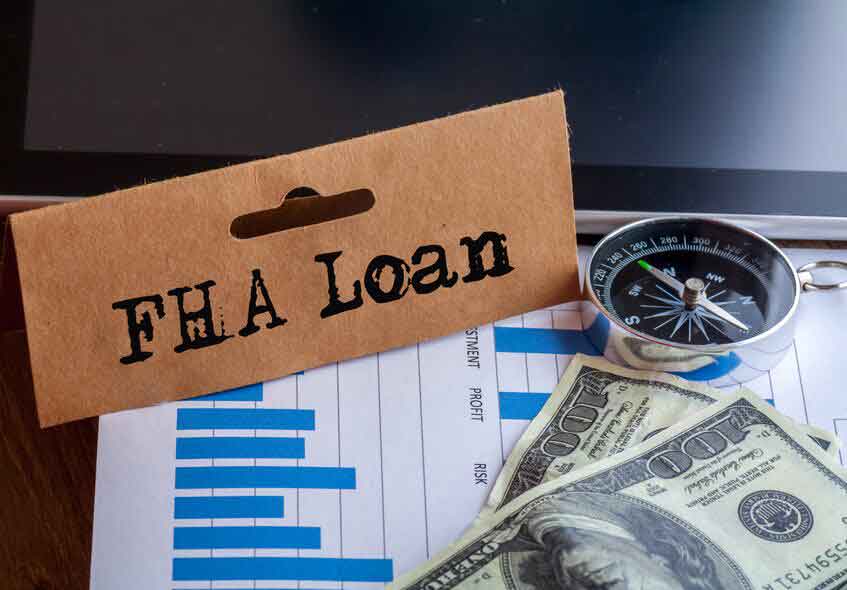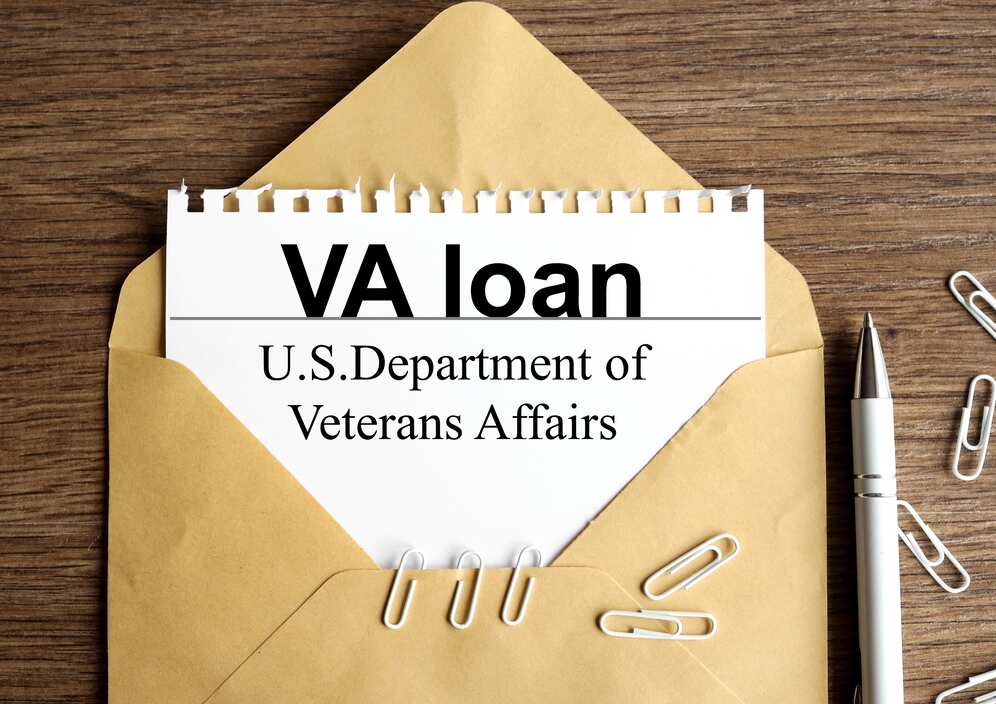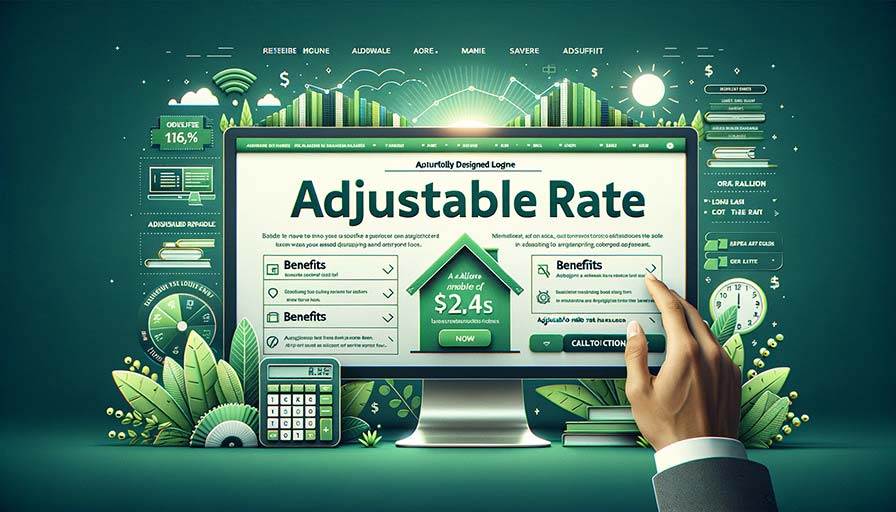
Refinance
Mortgages
Diversifying Your Financial Strategy: Exploring Refinance Mortgages for a Better Future
A brighter future starts here!
The Royal Commitment: Simplify and Save: Refinance Your Mortgage with Our Low Rates. We offer competitive rates for Refinance Mortgages. Let us help you save money on your mortgage payments.
Are you a homeowner looking to lower your mortgage payments or secure better interest rates? If so, you may want to consider refinancing your home. Refinance mortgages offer a way for homeowners to potentially save money and improve their financial situation. In this guide, we will explore what refinance mortgages are and provide a comprehensive overview of the program.
What is a Refinance Mortgage?
A refinance loan is a new loan taken out to replace an existing loan. It essentially pays off the current loan and creates a new loan with different terms, such as a lower interest rate or monthly payment. Refinance loans are most commonly used for mortgages, but can also be used for other types of loans, such as auto or student loans.
High-Level Overview of Refinance Mortgages
Non-qualified loans come in various forms, each offering its own set of features and requirements. Some common types include:
Traditional Refinance Mortgages

Traditional Refinance Mortgages, also known as a traditional refinance or no cash-out refinance, can be a beneficial option for homeowners looking to improve their mortgage terms without taking out cash. With this type of refinance, the homeowner replaces their current mortgage with a new one from the same lender, often with more favorable terms and a lower interest rate. This can result in lower monthly payments, saving the homeowner money in the long run.
There are several key benefits to traditional refinance mortgages. Firstly, since the new mortgage is from the same lender, there may be reduced paperwork and processing time, making the refinancing process smoother and more efficient. Additionally, homeowners with excellent credit scores may have access to even better rates and terms, making this option even more appealing.
Moreover, traditional refinance mortgages may be a wise choice for those who plan to stay in their homes for an extended period. By refinancing to a new mortgage with a lower interest rate, homeowners can save thousands of dollars in interest over the life of their loan. This can ultimately lead to a more stable financial future and provide peace of mind for homeowners.
Cash-Out Refinance

A Cash-out Refinance is a type of refinancing that allows homeowners to access the equity in their property by taking out a larger loan than their existing mortgage. The excess funds can be used to cover home renovations, investments, or other expenses.
One of the main advantages of a cash-out refinance is the ability to access the equity built up in the home. This can be particularly useful for homeowners looking to make significant improvements to their property or consolidate high-interest debt. By refinancing for a higher amount, homeowners can also take advantage of potentially lower interest rates, resulting in more manageable monthly payments.
However, there are some factors to consider before opting for a cash-out refinance. Since the loan amount increases, the homeowner’s monthly payments may also increase, so it’s essential to ensure that the new mortgage terms are manageable. Additionally, homeowners should carefully consider the purpose of the cash-out funds and make sure they are using the money wisely to achieve long-term financial goals.
FHA Streamline Refinance

FHA (Federal Housing Administration) refinance mortgages are government-insured loans that allow homeowners to refinance their homes with more flexible credit and income requirements. These loans are a popular choice for homeowners who may not qualify for traditional refinancing due to their credit score or income level.
One of the main advantages of an FHA refinance mortgage is the lower credit score requirements. While traditional refinancing may require a credit score of 620 or higher, FHA loans can be obtained with a credit score as low as 500 (with a 10% down payment) or 580 (with a 3.5% down payment). This makes FHA loans accessible to a wider range of borrowers.
Another benefit of an FHA refinance mortgage is the higher loan-to-value (LTV) ratio. This means that borrowers can refinance their home for a higher amount compared to the value of their home. In some cases, borrowers can refinance up to 97.75% of their home’s value.
Furthermore, FHA loans offer more favorable interest rates compared to other types of loans such as conventional mortgages. This can result in a lower monthly mortgage payment for the homeowner.
VA Interest Rate Reduction Refinance Loan (IRRRL)

VA (U.S. Department of Veterans Affairs) refinance mortgages are designed for veterans, active-duty military, and their families. These loans offer favorable terms and may not require a down payment or private mortgage insurance. This makes it easier for veterans to refinance their homes and potentially save money on their monthly mortgage payments.
One of the benefits of a VA refinance mortgage is the possibility of obtaining a lower interest rate. This can result in significant savings over the life of the loan. Additionally, VA loans have no prepayment penalties, so borrowers can make extra payments or pay off their loan early without incurring any fees.
Adjustable-Rate Refinance Mortgages

Adjustable-rate refinance mortgages have interest rates that can change over time, depending on market conditions. These loans can be a good option for homeowners who plan to stay in their homes for a short period or those who expect their income to increase in the future.
One advantage of adjustable-rate refinance mortgages is the lower initial interest rate compared to fixed-rate loans. This can result in a lower monthly mortgage payment for the borrower. However, it’s important to keep in mind that the interest rate may increase over time, potentially causing the monthly payment to also increase.
HARP Refinance

HARP (Home Affordable Refinance Program) refinances are specifically designed for homeowners with little or no equity in their homes. This program was created after the 2008 housing crisis to help homeowners who were unable to refinance due to a decline in their home’s value.
The main benefit of a HARP refinance is the potential savings for homeowners. By refinancing into a more favorable mortgage, homeowners may be able to reduce their monthly mortgage payments and save money in the long run. Additionally, HARP refinances may also allow borrowers to switch from an adjustable-rate loan to a fixed-rate loan, providing more stability in their monthly mortgage payment.
High-level Mortgage requirements
The requirements for a refinance mortgage vary depending on the type of program you choose. In general, lenders will look at your credit score, income, employment history, and debt-to-income ratio to determine your eligibility. You may also need to provide financial documents such as tax returns and bank statements.While the specific requirements for each refinance loan program may vary, there are some general requirements that most lenders will consider:
- Good credit score (ideally 620 or higher)
- Stable employment and income
- Sufficient equity in the home (typically at least 20%)
- Proof of homeowners insurance
Loan Limits and restrictions
Just like any loan, refinance loans also come with their own set of limits and restrictions. These may include:
- Good credit score (ideally 620 or higher)
Maximum loan-to-value ratio
: This is the percentage of the home’s value that can be borrowed. Most refinance loans have a maximum LTV of 80%-
Closing costs
: These are the fees associated with getting a refinance loan. They can typically range from 2-5% of the loan amount -
Prepayment penalties
: Some loans may charge a penalty if you pay off your loan early, so make sure to check for any prepayment penalties before signing on to a refinance loan.
Pros of Refinance Mortages
-
Lower Monthly Payments
: Lower Monthly Payments: Refinancing can help you secure a lower interest rate, which can result in lower monthly payments. -
Access to Cash
: With a cash-out refinance mortgage, you can tap into your home’s equity and receive money for various purposes. -
Consolidate Debt
: Refinancing can also help you consolidate high-interest debts, such as credit cards, into one monthly payment with a lower interest rate. -
Switch to a Fixed-Rate Mortgage
: If you currently have an adjustable-rate mortgage, refinancing can allow you to switch to a fixed-rate mortgage, providing more stability and predictability with your monthly payments. -
Improve Credit Score
: Making timely payments on your refinance mortgage can help you improve your credit score over time.
Cons of Refinance Mortgages
-
Closing Costs
: Refinancing typically involves closing costs, which can add up to thousands of dollars. It’s important to consider these costs when deciding if refinancing is worth it. -
Extended Loan Term
: If you refinance for a longer-term than your current mortgage, it may take longer to pay off your loan, and you may end up paying more in interest over time. -
Eligibility Requirements
: Depending on the type of refinance mortgage, you may need to meet specific eligibility requirements, such as credit score or income, which may disqualify some homeowners.
Who Should Refinance:
Refinance loans can be a suitable option for a variety of individuals. Here are a few examples of who may benefit from a refinance loan:
- Homeowners with a high-interest rate on their current loan
- Homeowners with a significant amount of equity in their home
- Those looking to free up cash for home improvements, debt consolidation, or other expenses
- Individuals looking to simplify repayment by consolidating multiple loans
- Those who want to switch from an adjustable-rate mortgage to a fixed-rate mortgage
When To Refinance Your Mortgage
-
When Interest Rates Drop
: One of the main reasons to refinance is to secure a lower interest rate. When market interest rates are low, it may be an excellent time to refinance. -
When Your Credit Score Improves
: If your credit score has improved since you first bought your home, you may now qualify for a better interest rate, making refinancing appealing. -
When You Want to Tap into Equity
: If you need cash for home improvements, debt consolidation, or other expenses, a cash-out refinance can provide the funds you need.
Who Should NOT Refinance
While refinancing can be a beneficial financial decision, it’s not the right choice for everyone. Here are some scenarios where refinancing may not be the best option:
- If your credit score has significantly decreased since you obtained your current loan
- If you do not have enough equity in your home
- If your current loan has a prepayment penalty that makes refinancing more expensive
- If you plan to sell your home in the near future
It’s always best to speak with a home loan specialist to determine which option is best for your unique financial situation.
When NOT To Refinance Your Mortgage
-
When Interest Rates are High
: Refinancing may not be worth it if interest rates are higher than your current mortgage. -
When You Plan to Sell Soon: If you plan to sell your home shortly, refinancing may not be necessary, and you may not recoup the costs of closing.
-
When Your Credit Score Has Dropped
: If your credit score has declined since you first purchased your home, you may not qualify for a lower interest rate, making refinancing pointless.
Additional Things to Consider
-
Shop Around for Lenders
: It’s essential to compare rates and terms from different lenders to find the best refinance mortgage option for you. Understand the Costs and Fees
: Before proceeding with refinancing, make sure you understand all the associated costs and fees.Have a Plan for the Savings
: If you are refinancing to save money, have a plan for how you will use the extra cash, whether it’s paying off debt or investing for the future.
Tips on Applying for Loan
-
Improve Your Credit Score
: Before applying for a refinance mortgage, work on improving your credit score to increase your chances of qualifying for better rates. Gather Necessary Documents
: Start gathering financial documents, such as tax returns and bank statements, in advance to speed up the application process.-
Watch Out for Predatory Lenders
: Be wary of lenders who promise unrealistic or too-good-to-be-true rates. Do your research and choose a reputable lender. - Get pre-approved to determine the loan amount you can afford
- Consider consulting a mortgage broker to find the best loan option for your needs.
In Summary
Refinance mortgages offer homeowners the opportunity to lower their monthly payments, tap into their home’s equity, or switch to a more stable mortgage option. But, it’s essential to understand the various types of programs, eligibility requirements, costs, and fees involved before making a decision. Evaluate your financial situation and goals to determine if refinancing is the right choice for you.
Learn More
If you’d like to learn more about refinancing your mortgage or to see if you qualify, we recommend speaking with a mortgage specialist
Mortgage Rate Trends:
A Historical Analysis
Unlock the Power of Numbers
Start Pre-Approval Application More on credit, LTV and Rate Trends
Advanced Mortgage Calculator
Get Pre-Qualified
Fill out our Pre-Qualification Survey to view your mortgage options
[bitform id='26' ]Here, Your Mortgage possibilities are endless!

Down Payment
Assistance 
Down Payment Assistance Programs
Get Up To 100% Financing For Your Home!
Visit Our Page

First-Time
Homebuyers 
First Time Homebuyer Mortgage Programs
If you are buying a home for the first time, you have come to the right place.
Visit Our Page

